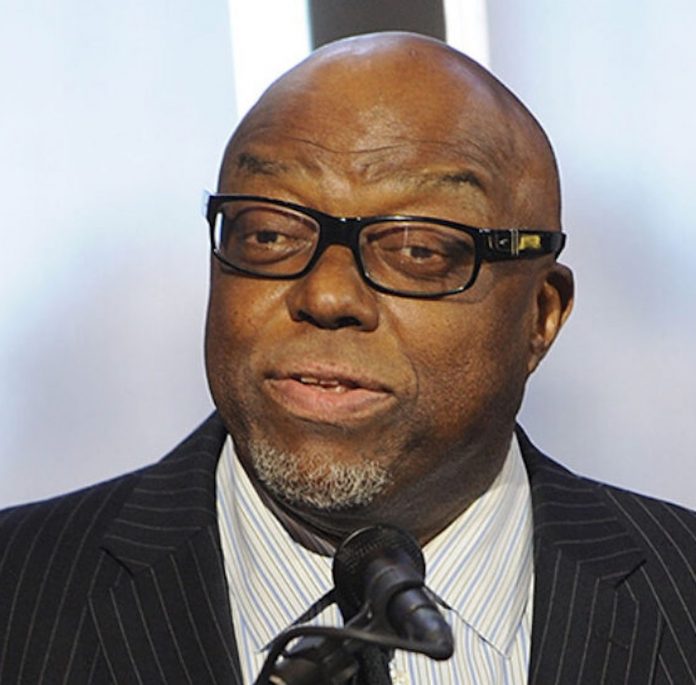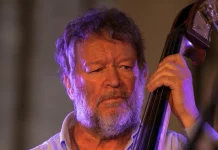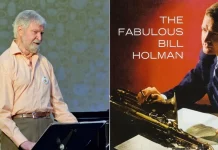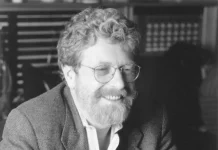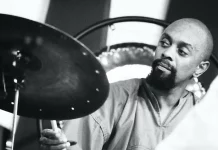Stanley Crouch, a controversial, aggressive and influential jazz critic, columnist for the Daily News and The Village Voice (from which he was fired after a fist fight in 1988 with a colleague), died on 16 September at the Calvary Hospital in New York City, aged 74.
Once characterised in the New York Times as “a freelance curmudgeon”, he supported the Black Separatism impulse after witnessing the 1965 riots in Los Angeles, but later joined the integrationist civil rights movement, rejecting a view of the “Negro” (a word he preferred to “African-American”) experience as one of victimisation. He called Louis Farrakhan, leader of the Nation of Islam, “insane”, the Reverend Al Sharpton, a “buffoon”, Alex Haley, acclaimed author of Roots as “opportunistic” and Toni Morrison, Nobel Laureate, as “a writer perforated by ideology”. Filmmaker Spike Lee was summarily dismissed as “a middle-class would-be street Negro.” Crouch’s intellectual idols and mentors were the writers James Baldwin, Ralph Ellison and Albert Murray.
A childhood convert to jazz, Crouch learned to play the drums, embraced the music of Ellington and Parker, later dismissed gangsta rap as “‘Birth of A Nation’ with a back beat”, and excoriated Miles Davis and John Coltrane as heretics for abandoning the spirit and structures of bebop. In their place, he extolled swing and lauded the young trumpeter Wynton Marsalis, who became one of his closest friends.
With Marsalis, Crouch was a co-founder of Jazz At Lincoln Centre and together they formulated a neo-classicist revival repertory. He also contributed extended and effusive liner notes to many Marsalis recordings, including Standard Time, The Midnight Blues, The Majesty Of The Blues, and Black Codes (From The Underground). In the last-named, he declared that “Marsalis wants to make music in keeping with the world-spirited joy and seriousness of Armstrong, Ellington, Parker, Monk, Coltrane, and the best of Davis, Coleman, Shorter and Hancock”. This view was reflected in his collaboration with Ken Burns on the 10-part documentary Jazz (2001).
As even his severest critics conceded, Crouch was steeped in jazz. His friend Gary Giddins observed in 2003: “He has spent more time in clubs than almost anybody else I know.” He also added that Crouch “may say something you think is preposterous, but he has earned the right to say it if for no other reason than because he has lived his whole life inside this music”.
A prolific essayist, his anthologies included Notes Of A Hanging Judge: Essays And Reviews, 1979-1989 (1990), The All-American Skin Game, Or, The Decoy Of Race: The Long And Short Of It, 1990-1994 (1995) and Considering Genius: Writings On Jazz (2006). Not all met with critical approval. Reviewing Notes Of A Hanging Judge, Deirdre English asserted that Crouch “sets himself apart from and above the tides of current opinion, sternly hammering a gavel of righteousness – or sometimes only righteous indignation”. In 2003, Jazz Times took exception to his essay “Putting The White Man In Charge” in which he had stated that white music critics promoted white jazz musicians, “to make themselves feel more comfortable about being in the role of evaluating an art form from which they feel substantially alienated”.
Crouch’s magnum opus is Kansas City Lightning: The Rise And Times Of Charlie Parker (2013). The product of 30 years of research, it was intended to be the first half of his biography. It received mixed reviews, the general tenor of which was that it sensitively depicted the events and incidents of Parker’s early life in Kansas City as recounted by his contemporaries. African-American scholar Henry Louis Gates, Jr. thought that the book “succeeds as few biographies of jazz musicians have, explaining exactly why Charlie Parker was a musical genius, while also helping us understand Parker’s psychology and the context of his times”.
But other critics saw it as too discursive and anachronistically “hip”. Some examples: Jack Johnson, the famed boxer, married a woman with “a fine brown frame”; gangster Dutch Schulz receives a “finalising lead night cap” (i.e., he was shot dead), while “Negroes” coming up to Chicago in the 1920s brought with them “speech rhythms as swift as the Chicago piano of a machine gun or as thick and oily as homemade peanut butter”. When John Hammond first heard KC jazz, “the experience flipped his Vanderbilt wig”. Yet in more restrained reflections on his love of jazz, Crouch writes that it “was always, or could be, a looking glass through which to see and express life in its multi-various forms and the infinity of its feeling, articulated in the transcendent beat of blues and swing”.
The (385 page) book concludes with Bird still in his early 20s, and before he had made a single record. As one reviewer, perhaps unkindly, commented: “If you stripped all of the extraneous material out, the facts about Parker’s life would just about fill a Kindle single”. The music critic of the New York Times called Kansas City Lightning “free-flowing and severe, volatile, expansive, allusive and indulgent. From bravura sentence to serpentine paragraph, the book is a virtuoso performance of musical literary mimesis”.
Stanley Lawrence Crouch was born on the Kansas side of Kansas City in 1945. His mother, Emma Bea, was a domestic servant, and his father, James, an alcoholic, was in jail when Stanley was born. An avid reader, and encouraged by his mother, Crouch graduated from high school in 1963, and attended two of California’s elite Claremont colleges – but without obtaining a degree. Lacking academic qualifications, he still managed to obtain academic positions at Pitzer and Pamona colleges. Moving to New York in 1975, he became a fixture in the city’s jazz scene, always gregarious and combative.
His first marriage to Samerna Scott ended in divorce; his second was to sculptor Gloria Nixon-Crouch. Among his many honours were being made a Jazz Master in 2019 by the National Endowment for the Arts, appointed a Visiting Professor at Columbia University, and elected President of the Louis Armstrong Educational Foundation.

